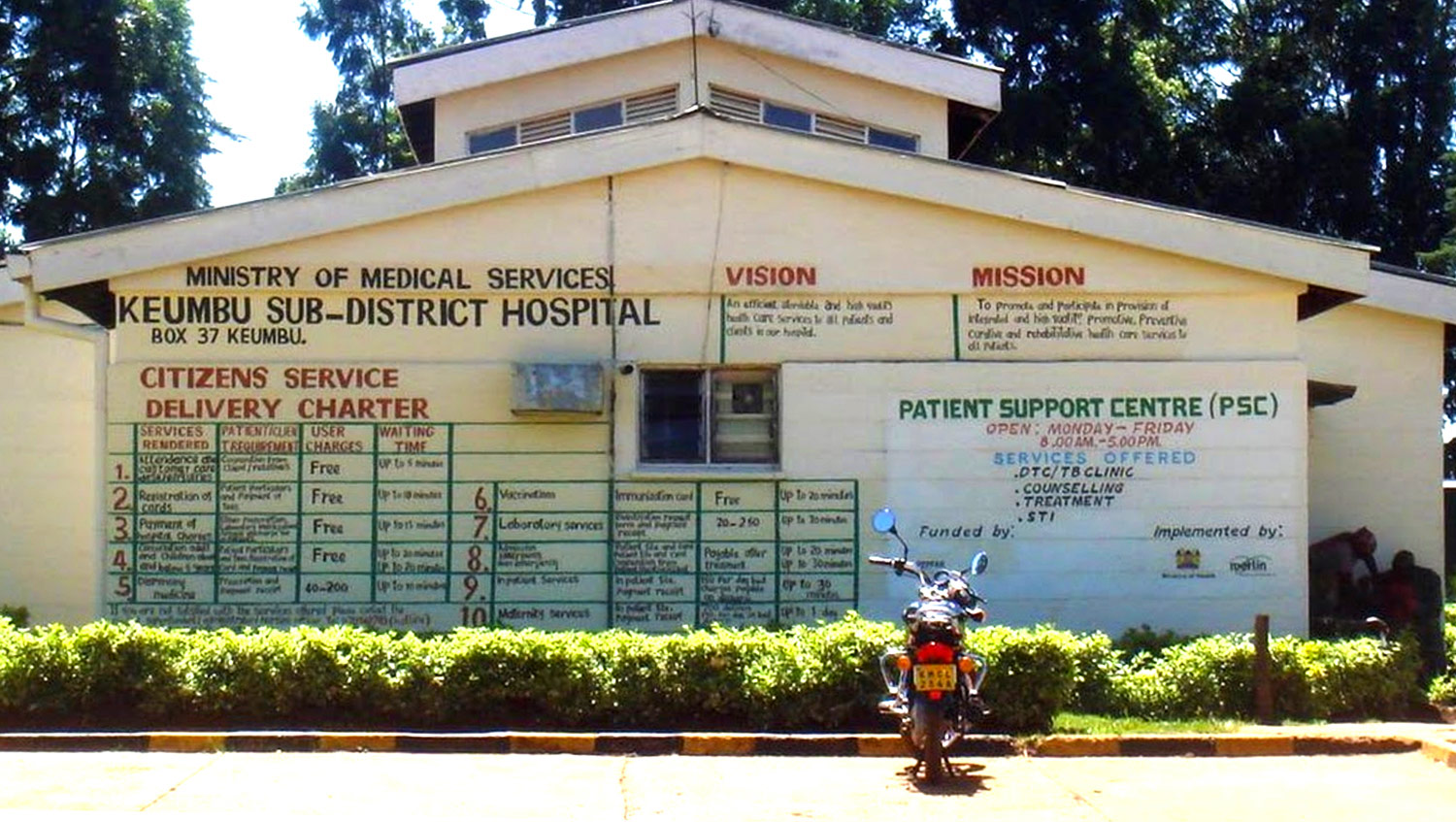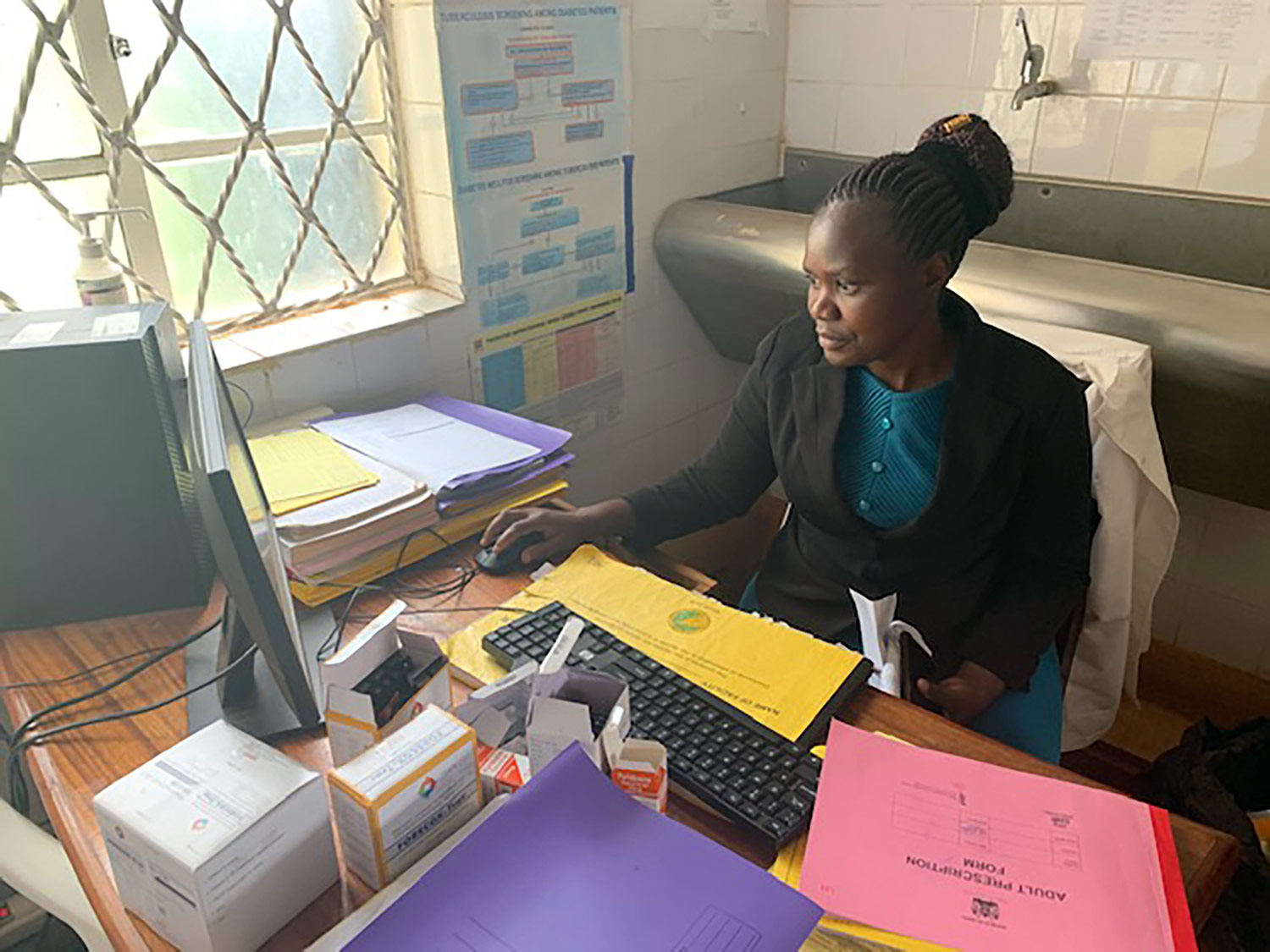Data Use Helping to Improve HIV Care in Kenya
Keumbu Sub-County Hospital is located in the rolling hills of Kisii County in southwestern Kenya.
Keumbu Sub-County Hospital is located in the rolling hills of Kisii County in southwestern Kenya. The facility provides a wide range of services to a mostly rural population, including HIV prevention, testing, and treatment.
Approximately 1,200 of Keumbu’s clients are HIV positive, and receive counselling, obtain medication, or are otherwise cared for at the facility. More than 95% of clients have attained “viral suppression,” meaning that the virus is undetectable in their bodies.

Ciheb has been working with Kenyan health facilities such as Keumbu Hospital for approximately three years as part of its Partnership for Advanced Care and Treatment Timiza (PACT Timiza) Project, which is funded by the Centers for Disease Control under PEPFAR(timiza is Swahili for “fulfill” or “accomplish”). The program works in collaboration with the county governments of Kisii and Migori to support quality HIV service provision.
“We must celebrate good practices while continuously seeking to address gaps to deliver optimal quality care.”
— Dr. Caroline Ngeno, Timiza Project Director
Beyond Keumbu, PACT Timiza is supporting facility-based health services across 242 facilities throughout Kisii and Migori counties. The aim is to enhance HIV prevention and treatment services. One of the key elements of the project is to integrate data to improve patient care and health outcomes.
“Keumbu Hospital is a great example of accurate and timely data utilization at the facility level,” said Dr. Marie-Claude Lavoie, Global Ciheb Director for Strategic Information and Evaluation during a recent data review at the facility. “The Keumbu team is continually monitoring data to determine whether they are making a difference in patients’ lives, and their ability to achieve viral suppression and raise retention rates is clear evidence that they are succeeding.”
A team of Keumbu clinicians, nurses, health records and information officers, and peer educators meet weekly to review data and ensure their initiatives are agile and responsive to client needs. This year the team had committed to improve their retention, ensuring that all clients on HIV receive care conveniently or transfer to a facility located closer to home. To achieve this goal, they implemented a bundle of strategies, including pre-appointment reminders and same day follow up, appointment tracking system, and targeted community services to maximize service effectiveness. Within a year, they have successfully improved their retention at 12 months on treatment from 84% to 95%.
Another key intervention is making client scheduling more flexible. “We want to make it as convenient as possible for the clients, said Mr. Dickson Ogola, Keumbu’s Adherence Counsellor, “so we let them decide the time and day of their appointment within the optimal window of care.” This flexibility and dedication to client needs has also meant that when clients in the community are unable to reach the facility, the team travels to the community to provide care.
Zipporah Ogaro, Keumbu’s health records officer, and Charles Obare, clinician in charge, recognize that these achievements are also attributable to teamwork. Despite the myriad demands they face, team members are available to go the extra mile to help their colleagues and deliver optimal care to clients.

Entering data into the IQCare patient management and monitoring system.
The Keumbu Hospital example is emblematic of the positive efforts being taken in Kenya to control and end the epidemic. Overall, Kenya is moving steadily forward toward meeting the UNAIDS 90-90-90 targets and in reducing the epidemic’s impact. AIDS-related mortality since 2010 has declined by 55% in Kenya, from 56,000 to 25,000 deaths per year. The number of new HIV infections has also decreased, from 66,000 to 46,000 in the same period.
Reliable, timely data will be essential to further guide clinical decision making and to help direct the efficient use of limited resources for maximum impact. At Keumbu, the team is already working on their next challenge; optimizing partner notifications services to reach high-risk individuals to disrupt the chain of HIV transmission.